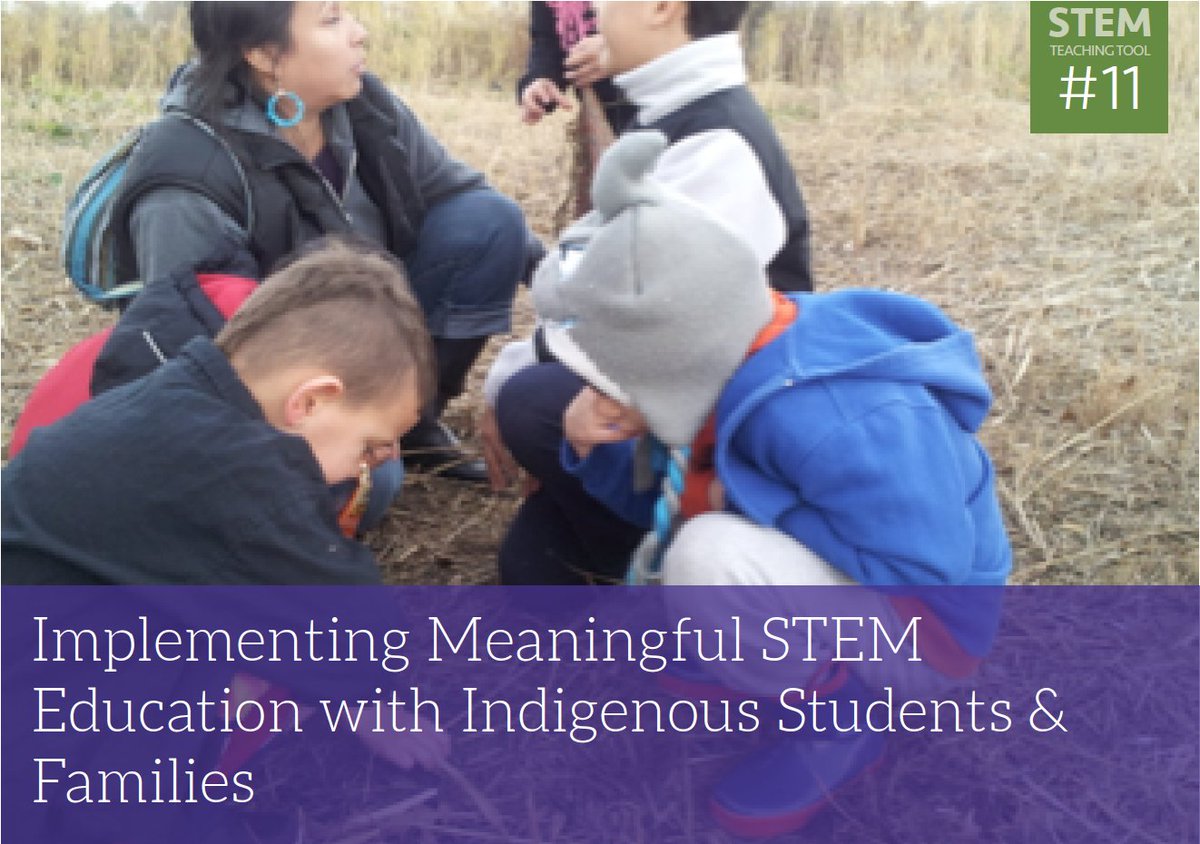
PLS RT #NGSSchat
Check out NEW @STEMTeachTools on how to promote #EnvironmentalJustice in #SciEd & #EnvironmentalEd through lens of Intersectional Environmentalism by centering…
BIPOC environmental:
🌿histories
🌿worldviews
🌿interests &
🌿futurities
stemteachingtools.org/brief/70
Check out NEW @STEMTeachTools on how to promote #EnvironmentalJustice in #SciEd & #EnvironmentalEd through lens of Intersectional Environmentalism by centering…
BIPOC environmental:
🌿histories
🌿worldviews
🌿interests &
🌿futurities
stemteachingtools.org/brief/70

As with all of our @STEMTeachTools practice briefs, you can get to the more polished PDF formatted version from the landing page of the resource. #NGSSchat #NGSS #SciEd
Here's the direct link for the new resource:
stemteachingtools.org/assets/landsca…

Here's the direct link for the new resource:
stemteachingtools.org/assets/landsca…


REMINDER: Some don't realize all of our @STEMTeachTools have embedded links that lead off to resources (background info, tools, examples…).
This one links off to contributions of: @isxenviro @LearnInPlaces @RelatingRtP, Dr. @Nxumalo71 @emergence_zine, Dr. Robin Wall Kimmerer…
This one links off to contributions of: @isxenviro @LearnInPlaces @RelatingRtP, Dr. @Nxumalo71 @emergence_zine, Dr. Robin Wall Kimmerer…
It also includes contributions from: Dr. Kimberlé Crenshaw @MothersInvent Dr. @Amazon_Scholar @ShoppeBlack Latino Outdoors™️, Brown Folks Fishing, Dr. David Gruenewald, Dr. @kylepowyswhyte, @IndigenousSTEAM, Queer Nature & @django_paris. So grateful for this brilliant work!🙏
That should be Dr. @django_paris. My apologies for that oversight! Also, congratulations on the recent promotion to full professor, Django! Your contributions to the world continue to transform it towards justice. Thank you!!
• • •
Missing some Tweet in this thread? You can try to
force a refresh








